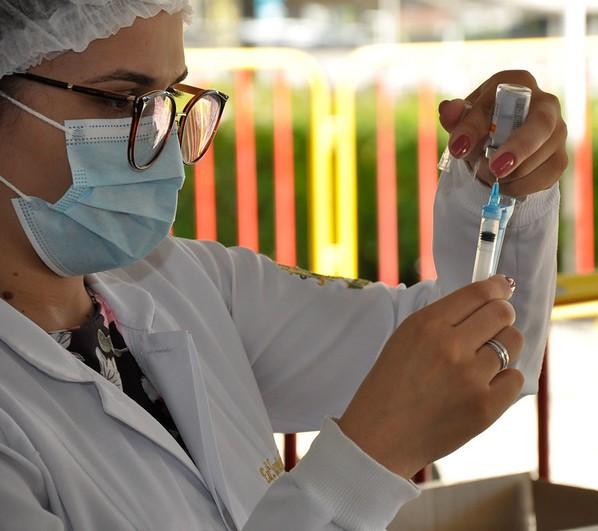Top officials from the World Health Organization (WHO) said today that COVID-19 cases have climbed for the seventh week in a row, warning that masks, distancing, and other measures are needed to give vaccines a chance to reduce transmission.
At a briefing today, WHO Director-General Tedros Adhanom Ghebreyesus, PhD, said last week marked the fourth highest COVID total in a single week, despite the fact that 780 million doses of vaccine have been given across the globe. "Make no mistake, vaccines are a vital and powerful tool," Tedros said. "But they are not the only tool."
Exponential global case growth
Maria Van Kerkhove, PhD, the WHO's technical lead for COVID warned that the pandemic has reached a critical point, with cases growing exponentially. Cases were up 9% last week, with a 5% increase in deaths. "This isn't the situation we want to be in at this point in the pandemic," Van Kerkhove said.
Officials said the decline earlier this year serves as proof that the virus and variants can be stopped, but confusion, complacency, and inconsistently applied public health measures are driving transmission.
Tedros said concerted efforts to pair public health measures with equitable vaccination could control the pandemic in a matter of months. "Whether we do or not comes down to the decisions and the actions that governments and individuals make every day," he said.
In another WHO development, talks are underway with African leaders to find ways to boost global vaccine manufacturing by ramping up production capacity in Africa. Bruce Aylward, MD, MPH, senior advisor to Tedros, said it will take time to build capacity, but it's clear that the political will among African leaders is there. "This will more quicker than people anticipate," he said.
India's infections climb
At today's WHO briefing, Tedros said several countries in Asia and the Middle East have seen large increases in cases.
India's second-surge cases continue to soar higher, with the country reporting a new single-day high today of 168,912 new cases, according to Reuters. Indian officials say the full reopening of the economy earlier this year, mass religious festivals, and political rallies are fueling the outbreak.
The Kumbh Mela pilgrimage is currently underway in the northern city of Hardiwar, where about 5 million people are expected to bathe in the Ganges River as part of a spiritual ritual.
In a related development, Indian officials yesterday banned the export of the antiviral drug remdesivir and the raw materials to make it, to help meet the country's own needs during its surge, according to Reuters. Officials recently cut back on international shipments of AstraZeneca-Oxford vaccine made at India's Serum Institute to help meet the country's own needs. Currently, less than 4% of the country's population is estimated to be vaccinated.
In other hot spot developments, cases in Iran—the worst hit country in the Middle East—climbed higher, with more than 21,000 cases reported over the last day, along with 258 deaths, the highest since last December.
In Europe, Turkey's daily total topped 50,000 again yesterday, and cases have jumped fivefold since early March, according to government officials, who said loosened measures and the spread of variants are contributing to the rise. The Turkish government is poised to tighten restrictions again.
More global headlines
- In vaccine developments, France became the latest country to extend the gap between the two COVID-19 mRNA vaccine doses as a strategy for increasing the number of people protected, and China is considering a similar measure. Also, a large study in Brazil suggested that a version of China's SinoVac vaccine made in Brazil is 50.7% effective against the P1 variant, and South Korea said it may begin producing the Novavax vaccine as early as June.
- Thailand, among the countries known for controlling the spread of COVID-19, reported a daily high today of 985 cases, with the outbreak centered in Bangkok's nightlife district, the New York Times reported. The spike comes as families travel for the Thai New Year holiday, which begins tomorrow.
- People's expectations about when life will return to normal after the pandemic varied widely across the globe, with 59% anticipating something similar to "normal" with the next 12 months, according to a new survey from the World Economic Forum and Ipsos. Of adults in Saudi Arabia, Russia, India, and China, 70% predicted a return to normal over the next 12 months. However, 80% of adults polled in Japan said it would take longer, along with more than half in France, Italy, South Korea, and Spain.
- The global total today climbed to 136,284,991 cases with 2,940,601 deaths, according to the Johns Hopkins online dashboard.




















